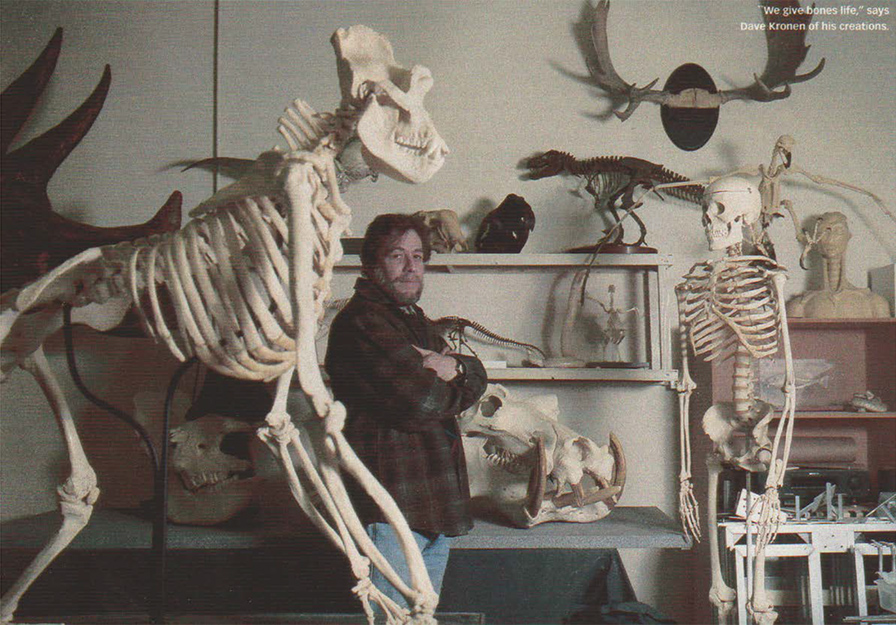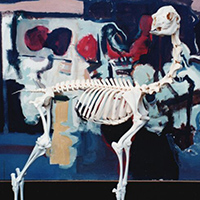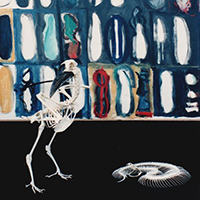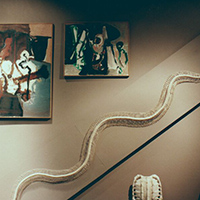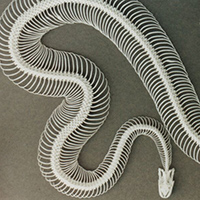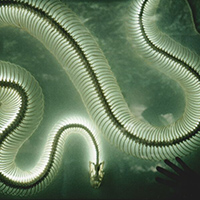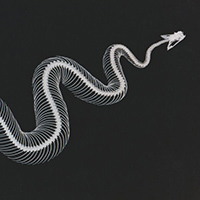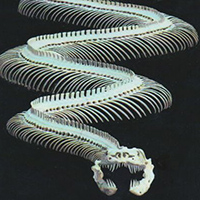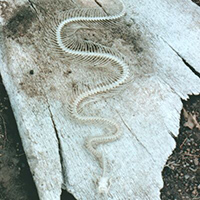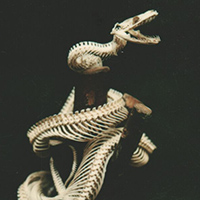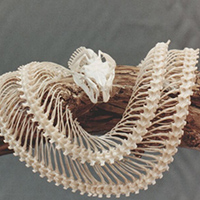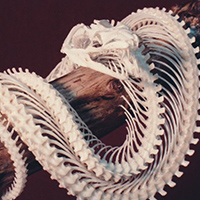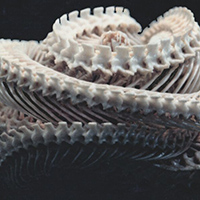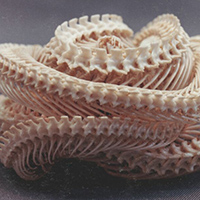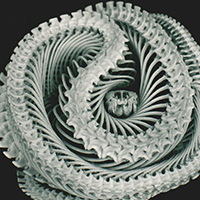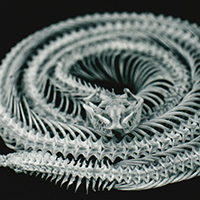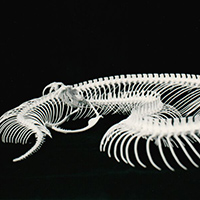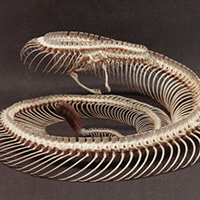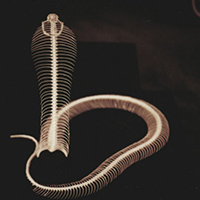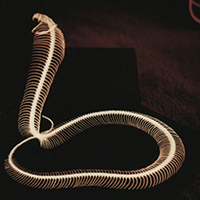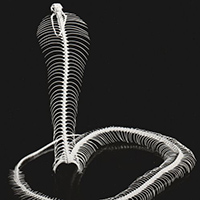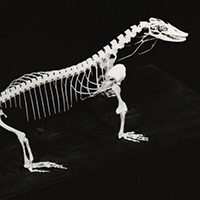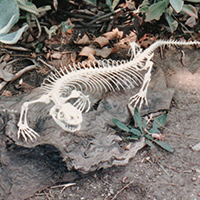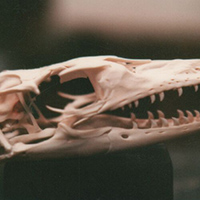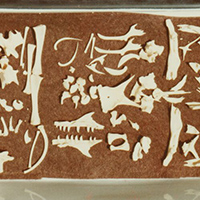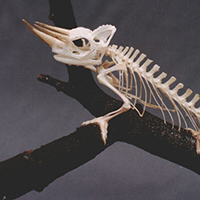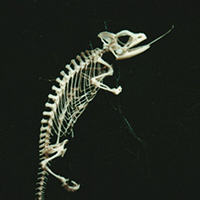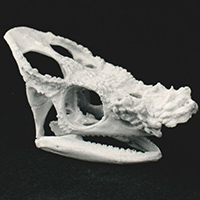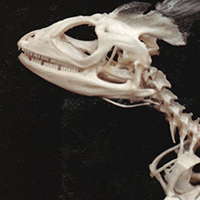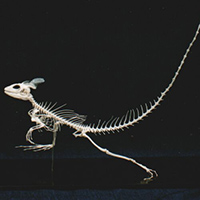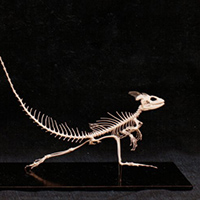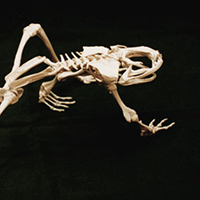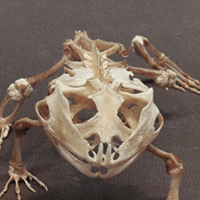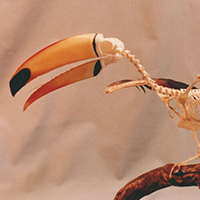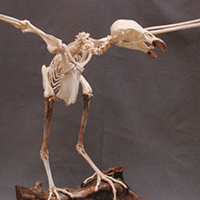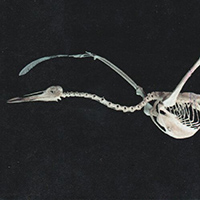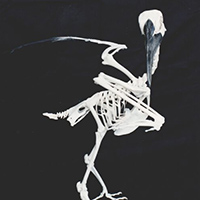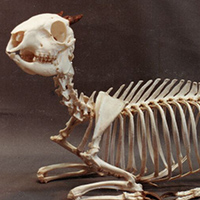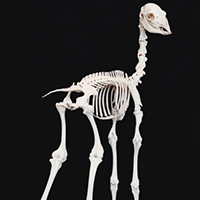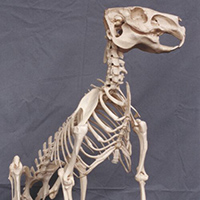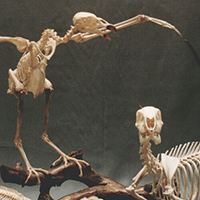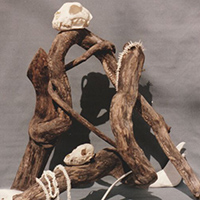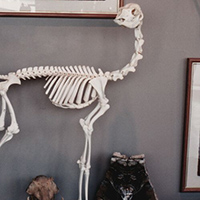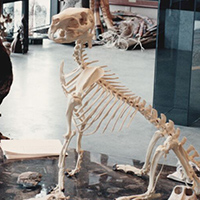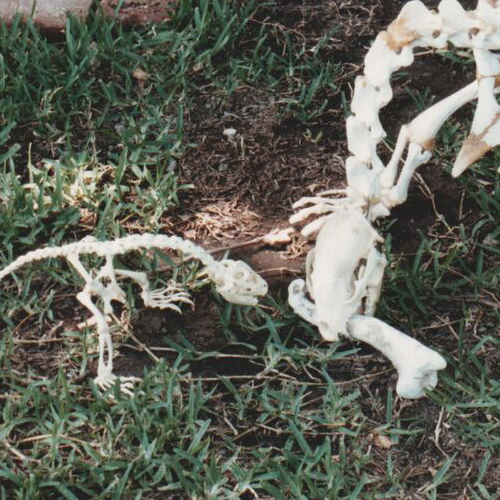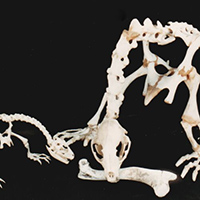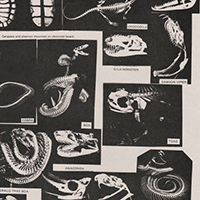Skeletal Remains That Are Scarier Than the Real Thing
Dave Kronen was an abstract painter moonlighting as a rare-animal importer when his monitor lizard died. "The vet said he could tell me what happened if I prepared the neck bone," he recalls. A local museum instructed him how to skin, gut, boil and bleach the carcass, and the emerging skeletal structure had an unexpected effect on Kronen. "The shapes of the bones were abstract forms, and everything about them--the texture, the holes, the way they were formed--meant something," he says. "Everything about them had developed through time to do a usable function."
When the museum offered to buy the skeleton, Kronen's fate was sealed. "I was an artist," he says. "I needed money, and this fascinated me." Fortified with a supply of fatalities from California zoos, Kronen launched a career preparing rare-animal bones for museums and schools.
Twenty-five years later, Kronen happened upon a replica of an ancient mastodon cast in foam that had been made for a golf course. It was a good copy, Kronen thought, but he could do better. He made it his mission to use his artistic skill to create synthetic skeletons with an accuracy that had never before been achieved. Eight years later, Kronen Osteo/Bone Clones nestles in a Canoga Park warehouse, where Kronen's 14 artisans and craftsmen painstakingly cast, sculpt and paint replicas of rare-animal, fossil and hominid bones. Kronen, 59, has developed new resins and
|
plastic which more closely resemble bones, as well as painting techniques to "age" them more cunningly. His showroom is a charnel house filled with skeletons of harpy eagles in mid-flight, "super crocs" in mid-snap and snarling saber-toothed tigers poised to pounce. All hover with an eerie sense of vitality. "We re-create the power of the animal," Kronen says. "We give bones life."
Kronen makes more than 350 products from nearly 2,500 individual bones. Most of his business comes from institutions, but retail sales are surprisingly brisk (prices can range from $5 for a shark tooth to $7,900 for a complete saber-toothed tiger). "Sharks are very popular," he says. "Thank the Discovery Channel. And things with long fangs that are deadly sell." His most popular product is that saber-toothed cat. "A lot of lawyers buy them and put them on their desk," he says. Lawyers? "I think because it's macho. Politicians, too. Fortune 500 executives. It makes a great piece for your captain-of-industry type."
Bone Clones also supplies the entertainment industry with everything from fanciful alien skulls to crime victim remains for the TV show "CSI." But speaking with Dave Kronen, you get the sense that making a living comes second to his passion for the extra-credit rewards of making artificial bones. "We're helping endangered species by reducing the pressure on poaching," he says. "We're filling the gaps for people who want to teach anthropology but couldn't because the materials weren't there. My life is about revealing the unseen structure in things, and the way things function. Bone Clones is my legacy." -Nelson Handel
LOS ANGELES TIMES MAGAZINE, March 10, 2002
|
